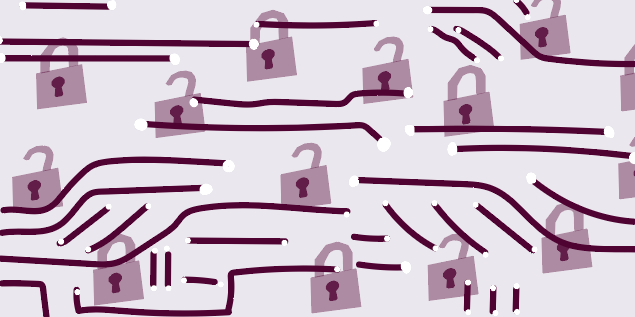Cybersecurity Threats
Are BV students being protected?
As schools become more reliant on technology, it raises the question of cybersecurity for students. Blue Valley is now in a position that puts us at risk due to the newness of virtual learning. We never had to depend on the internet so much to do all of our schoolwork.
With these new changes, we need to adapt and inform ourselves about how to stay safe.
According to the K-12 Cybersecurity Resource Center, there have been 1,062 cyber incidents countrywide this year alone.
IT experts at Consortium for School Networking took a survey and cybersecurity was at the top of their list for importance. With this being said, every BV student needs to learn what this term means and how it applies to them specifically.
So, what determines if something is a cyber incident?
An infringement in cybersecurity can range anywhere from any unauthorized disclosures, breaches, or hacks that reveals personal information to denial-of-service or ransom attacks. But the most common example that affects students is phishing.
According to Kennesaw State University’s Office of Cybersecurity, phishing is defined as “the fraudulent practice of sending emails purporting to be from reputable companies in order to induce individuals to reveal personal information, such as passwords and credit card numbers.”
BV students are especially vulnerable to this as we check our inboxes daily and usually trust who we receive emails from.
Unfortunately, with the amount of workload and reliance on technology to finish that work, some of us can become unaware of the potential dangers of the information we’re putting out onto the web.
Juniors and seniors are especially vulnerable to cybersecurity dangers. Information from whom they assume to be colleges could be from someone else. This may seem a little bit frightening, but here are some tips that can help everyone feel a little more at ease:
- Avoid clicking on links inside emails.
- Enable two-factor authentication with any account that allows the option.
- Try not to use the same passwords across multiple social networks.
- Be cautious of generic emails.
- Don’t download or open anything from anonymous senders.
These 5 tips are from the Better Business Bureau and Kim Komando, who talks about consumer technology on her radio show. These tricks might seem simple but they truly go a long way. With times being as stressful as they are now, people might slip up so make sure to keep these things in the back of your mind at all times.
In this day and age, there is a lot of trolling and hacking on every social network. It is our job to be able to set up ourselves for success. We need to look into our data security to make sure our information stays strictly ours unless we have given consent. Private information should remain private.

Rylee Bergmann is a senior and first-year staff member. She is a big business girl as she is in DECA. She frequently makes tik toks (follow her @rybreaddd13),...




